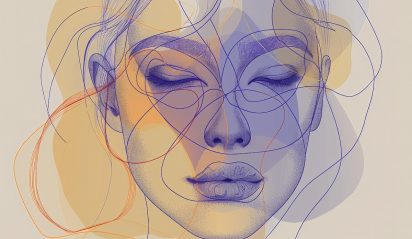When most people hear the term binge eating disorder (BED), they often think only about food. But BED is about so much more than eating large amounts at once—it’s deeply tied to how people cope with overwhelming emotions, self-esteem struggles, and mental health challenges. One of the strongest and most well-documented links is between binge eating disorder and depression. Understanding this connection can help people feel less alone, break down shame, and guide them toward compassionate, evidence-based support.
What Is Binge Eating Disorder?
Binge eating disorder is the most common eating disorder in the United States—more common than anorexia and bulimia combined. People with BED regularly eat unusually large amounts of food in a short period, often feeling out of control during the episodes. Unlike bulimia, binge eating episodes aren’t followed by purging behaviors like vomiting or excessive exercise.
What makes BED so distressing isn’t just the amount of food consumed, but the emotional pain that comes with it. People often feel intense guilt, shame, or self-loathing afterward, which can fuel a painful cycle that’s hard to break.
Depression and BED: Two Sides of the Same Coin
Research shows that binge eating disorder and depression often go hand-in-hand. In fact, according to studies published in the Journal of Psychiatric Research and the International Journal of Eating Disorders, people with BED are significantly more likely to experience major depressive disorder compared to the general population.
But why are these two conditions so closely linked? Here are a few reasons:
Emotional coping
Many people with BED use food to soothe feelings of sadness, stress, or loneliness. Bingeing can temporarily numb painful emotions or provide comfort—but afterward, feelings of guilt and hopelessness often return even stronger.
Low self-esteem
Depression and BED both feed off negative thoughts about oneself. People with BED often struggle with poor body image and harsh self-criticism, which deepens depressive feelings.
Biological overlap
Some research suggests that chemical imbalances in the brain—such as changes in serotonin and dopamine pathways—play a role in both depression and binge eating behaviors.
Vicious cycles
Depression can sap a person’s motivation and energy, making it harder to engage in healthy eating habits or self-care. This can lead to more binge episodes, which worsen depression.
The Real Impact on Daily Life
When binge eating disorder and depression occur together, daily life can feel like an uphill battle. Tasks like going to work, maintaining relationships, or even getting out of bed can feel overwhelming. Many people feel stuck in a loop of using food to cope with distress, only to feel more distressed afterward.
It’s important to remember that BED is not simply a lack of willpower. It is a recognized mental health disorder that involves both emotional and biological factors. No one chooses to have BED or depression—these are real, painful conditions that deserve understanding and proper care.
Breaking the Shame: You’re Not Alone
Unfortunately, stigma and shame often keep people silent. Many feel embarrassed about their eating behaviors or believe they should be able to “just stop.” This silence can worsen both the binge eating and the depression.
One of the most powerful steps toward healing is realizing you are not alone. Millions of people live with binge eating disorder, and many also battle depression. Speaking openly, whether with trusted loved ones or professionals, can be the first step to breaking the cycle.
How Treatment Can Help
Treating BED and depression together is essential. When only one condition is addressed, the other can continue to cause distress. A combined approach works best, focusing on both the emotional and physical aspects of these conditions.
- Evidence-based therapies: Cognitive Behavioral Therapy (CBT) is one of the most effective treatments for BED and depression. It helps people recognize harmful thought patterns, develop healthier coping strategies, and rebuild self-compassion.
- Medication: Some people benefit from antidepressant medications or other prescribed treatments that target both binge eating behaviors and depressive symptoms.
- Nutrition counseling: Working with a registered dietitian can help people develop balanced eating habits without guilt or restriction, supporting both physical health and emotional well-being.
- Support groups: Many people find comfort and strength in peer support, whether through in-person groups or online communities. Sharing experiences with others who truly understand can reduce isolation and provide hope.
Hope for Healing
Recovery is possible. Many people with binge eating disorder and depression go on to build healthy relationships with food, their bodies, and themselves. Healing doesn’t mean never feeling sad or never struggling with food again. It means learning to manage difficult emotions in healthier ways, finding supportive people, and remembering you are worthy of help and kindness.
Magnolia Creek is dually licensed to treat eating disorders and a multitude of co-occurring disorders. We tailor our treatment plans to individual needs and goals while empowering every client in our care to embrace recovery with resilience and independence.
Sources
Hudson, J. I., et al. The prevalence and correlates of binge-eating disorder. Biol. Psychiatry, 57(3).
Udo, T., & Grilo, C. M. BED and psychiatric comorbidity in US adults. J. Psychiatr. Res., 96.
Grilo, C. M., et al. DSM-5 binge eating disorder and depression. Int. J. Eat. Disord., 47(3).
Dingemans, A., et al. Depression in binge eating disorder. Curr. Opin. Psychiatry, 30(6).
Yanovski, S. Z. Binge eating disorder and obesity. JAMA, 317(11).















































